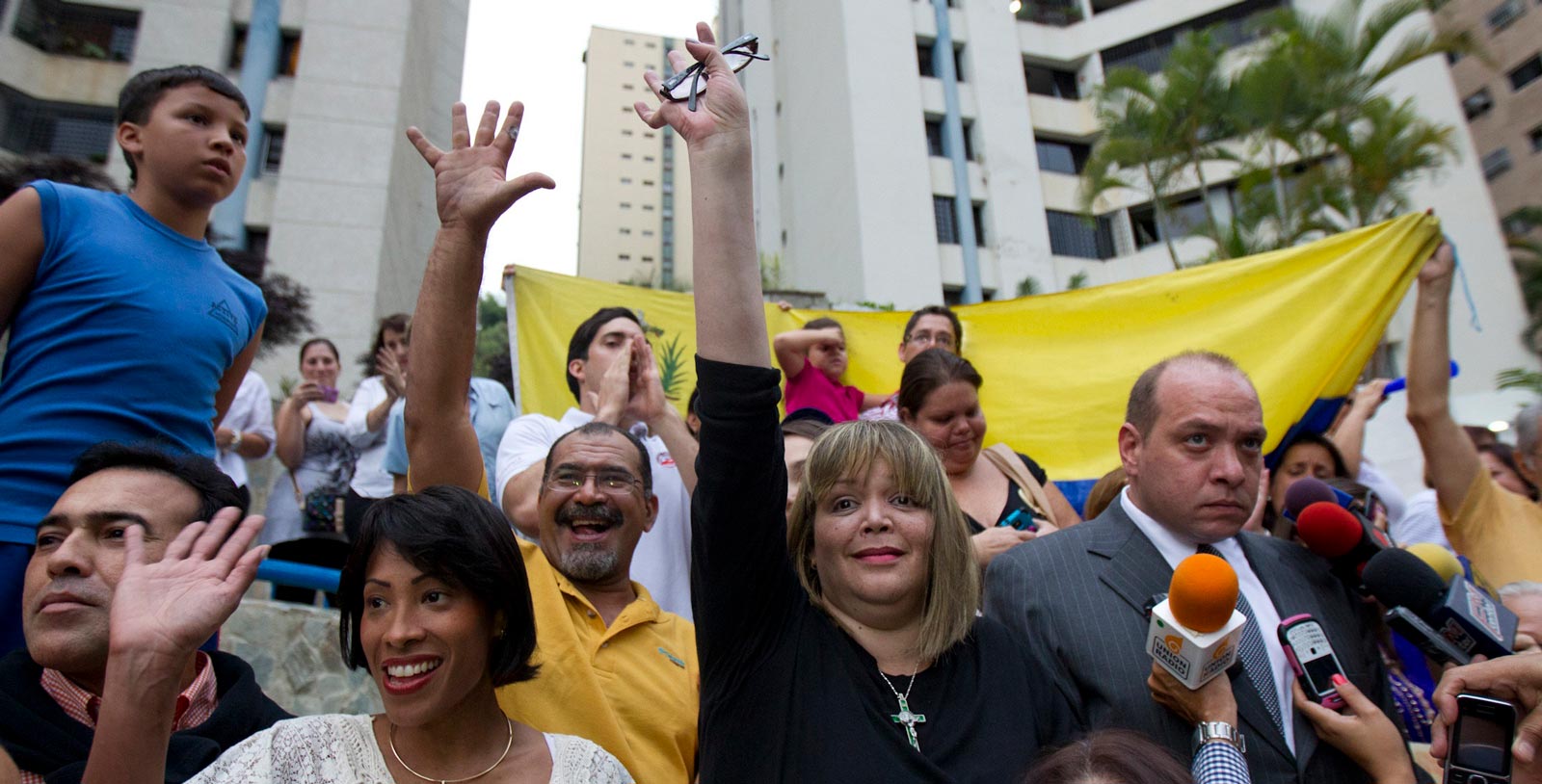Leer en línea
Download report
A new report from the International Bar Association's Human Rights Institute (IBAHRI) presents the results over nine years of observation of the criminal trial against Judge María Lourdes Afiuni in the Bolivarian Republic of Venezuela. Judge Afiuni was arbitrarily arrested without a warrant on 10 December 2009 following her decision to release an alleged ‘political prisoner’, replacing custodial measures with other precautions. The report, Legal Guarantees and Due Process: 10 Years of the Afiuni Case (in Spanish only), sets out the main conclusions of the IBAHRI’s observation of the court proceedings, particularly the second trial, which started on 29 April 2015 after the first trial was suspended by the Venezuelan Supreme Court on 23 October 2013.
Ten years have passed since Judge Afiuni was arrested. Government officials, including the President of the Republic, publicly stated that she was guilty before judicial proceedings began. After spending more than three years in detention, ‘preventive’ measures were imposed that remain in force to date.

The main conclusions (identified by means of observing the proceedings with regards to the safeguards for due process, judicial independence, access to justice and exhaustion of internal appeal) are as follows:
-
there has been a gradual weakening of the judiciary and the deterioration of democratic structures, and these processes are corroding the separation of powers against a backdrop of severe political turmoil;
-
the efforts of the IBAHRI and other international organisations and forums have not succeeded in putting an end to the violations of Judge Afiuni's fundamental rights. Although the shift from imprisonment to house arrest and subsequent restrictions was regarded at the time as a step forward, given the serious risks to life and physical safety then prevailing, it remains the case that the remaining restrictions are causing irreparable harm to Judge Afiuni's life plans. The defendant and her defence team show signs of fatigue and despair, owing to the absence of a fair trial and due process;
-
over this period of ten years, the proceedings have lacked the proper safeguards, mainly due to the absence of judicial independence and arbitrary decision-making;
-
the process of taking and examining evidence was rife with unjustified delays, cancelled hearings and failure to summon witnesses on time. In the best of cases, only one or two witnesses would appear at a given sitting of the court;
-
the Court never ruled on the merits of the application for the restrictions on Judge Afiuni to be lifted, or on the application for a declaration that the maximum term of any potential sentence has already elapsed. The final decision was based on an offense not recognised in national criminal legislation, that is, ‘spiritual corruption’;
-
these features of the proceedings are contrary to the principles of legality, promptness, due process and timeliness, which are human rights standards that have been enshrined in instruments such as the American Convention on Human Rights, among others; and
-
all the issues identified and discussed throughout this report point to the liability of the Venezuelan State, which has nonetheless failed to abide by the recommendations of the IBAHRI and other international organisations and forums.
ENDS
Notes to the Editor
-
Click here to download the report Legal Guarantees and Due Process: 10 Years of the Afiuni Case
-
Click here for related material:
www.ibanet.org/Human_Rights_Institute/Work_by_regions/Americas/Venezuela
-
A timeline depicting the Venezuelan authorities’ systematic abuse of human rights can be viewed here: www.ibanet.org/MediaHandler?id=6cb66a6e-7d0f-432e-89b5-909732f2d3e6
-
The International Bar Association (IBA), the global voice of the legal profession, is the foremost organisation for international legal practitioners, bar associations and law societies. Established in 1947, shortly after the creation of the United Nations, it was born out of the conviction that an organisation made up of the world's bar associations could contribute to global stability and peace through the administration of justice. In the ensuing 70 years since its creation, the organisation has evolved from an association comprised exclusively of bar associations and law societies to one that incorporates individual international lawyers and entire law firms. The present membership is comprised of more than 80,000 individual international lawyers from most of the world’s leading law firms and some 190 bar associations and law societies spanning more than 170 countries.
The IBA has considerable expertise in providing assistance to the global legal community, and through its global membership, it influences the development of international law reform and helps to shape the future of the legal profession throughout the world.
The IBA’s administrative office is in London, United Kingdom. Regional offices are located in: São Paulo, Brazil; Seoul, South Korea; and Washington, DC, United States, while the International Bar Association’s International Criminal Court and International Criminal Law Programme (ICC & ICL) is managed from an office in The Hague, the Netherlands.
The International Bar Association’s Human Rights Institute (IBAHRI), an autonomous and financially independent entity, works to promote, protect and enforce human rights under a just rule of law, and to preserve the independence of the judiciary and the legal profession worldwide.
For further information please contact: